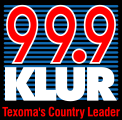 Car wrecks are the leading cause of death for US teens.
Car wrecks are the leading cause of death for US teens.
Federal health officials says most of these deadly accidents happen between 9pm and 6am. They say state curfews for young drivers just aren’t cutting it.
They are suggesting states review and possibly adjust their curfew times to get teens out of the driver’s seat earlier.
Federal health officials say every state except Vermont has nighttime driving restrictions. Law enforcement officials say Texas teens under 18 get a provisional driver’s license and their driving is limited.
“The hours in the state of Texas are midnight to 5am. If they have a provisional license they can’t be on the street between midnight and 5am. That’s important to know because that is state law.”
The curfew is tighter for 16 year olds in Wichita Falls.
“Here in Wichita Falls we also have a curfew for drivers 16 years of age. Our curfew by city ordinance is 11pm Sunday through Thursday and on the weekends it becomes midnight.”
Experts say driving after dark raises the risk for deadly crashes across all age groups. But the CDC says driving at night is especially challenging for teens because of their inexperience. Experts say teens don’t get a lot of night driving experience because parents normally drive with them in the daytime when they can see better and most driving schools don’t have the available hours to teach at night. Their advice to teens…
“Drive a little bit at a time maybe an hour or so at a time in the dark to get your eyes focused. If you get out there and you just drive how you normally drive in the daytime you’re going to have a wreck somewhere.”
Wendell Carroll, the owner of Alpha Omega Driving Academy, says he thinks a midnight curfew is fine for teens – anything else is too restrictive. He says avoiding distractions and being aware is also key to safety. Whether states adjust their curfews or not remains to be seen. In the meantime students, at Alpha Omega Driving Academy say safe driving is about using common sense.
Part of the reason for allowing teens on the road later is to accommodate those who work, play sports or engage in other activities at night. The CDC says states can have exemptions for those reasons while still restricting other nighttime driving.
– Newschannel 6





